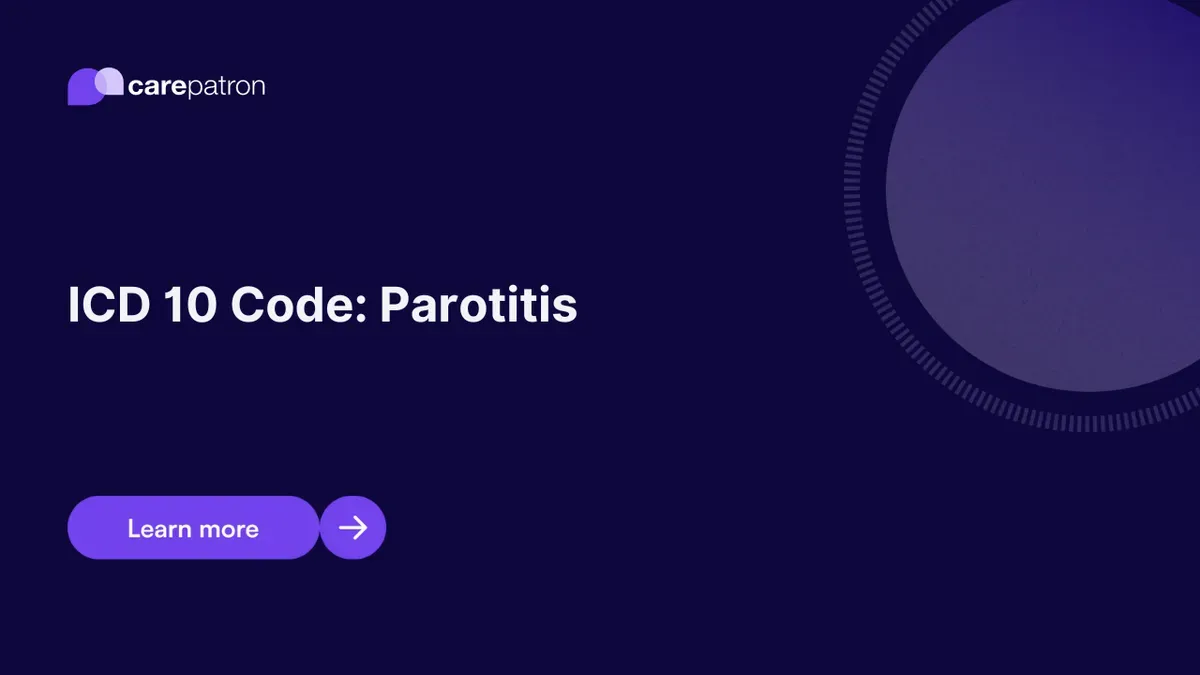
Parotitis ICD-10-CM Codes
Uncover the ICD-10-CM code for diagnosing and documenting inflammation of the parotid gland, parotitis—essential coding guide for salivary gland disorders.
Use Code
EHR and practice management software
Get started for free
*No credit card required
Free
$0/usd
Unlimited clients
Telehealth
1GB of storage
Client portal text
Automated billing and online payments
